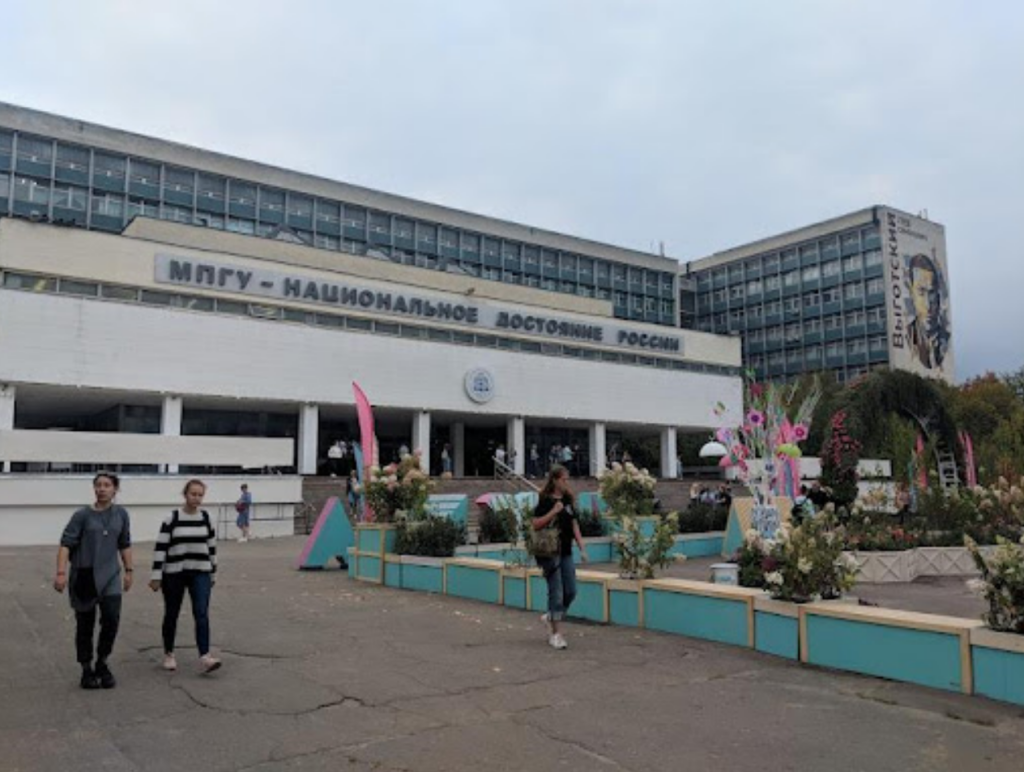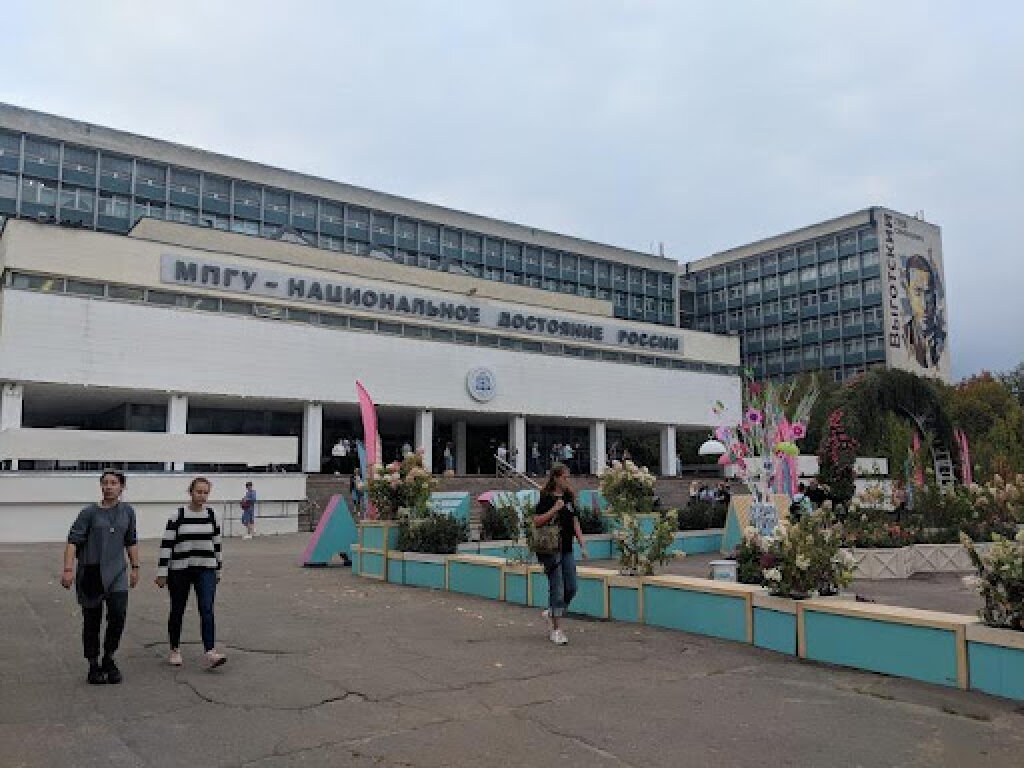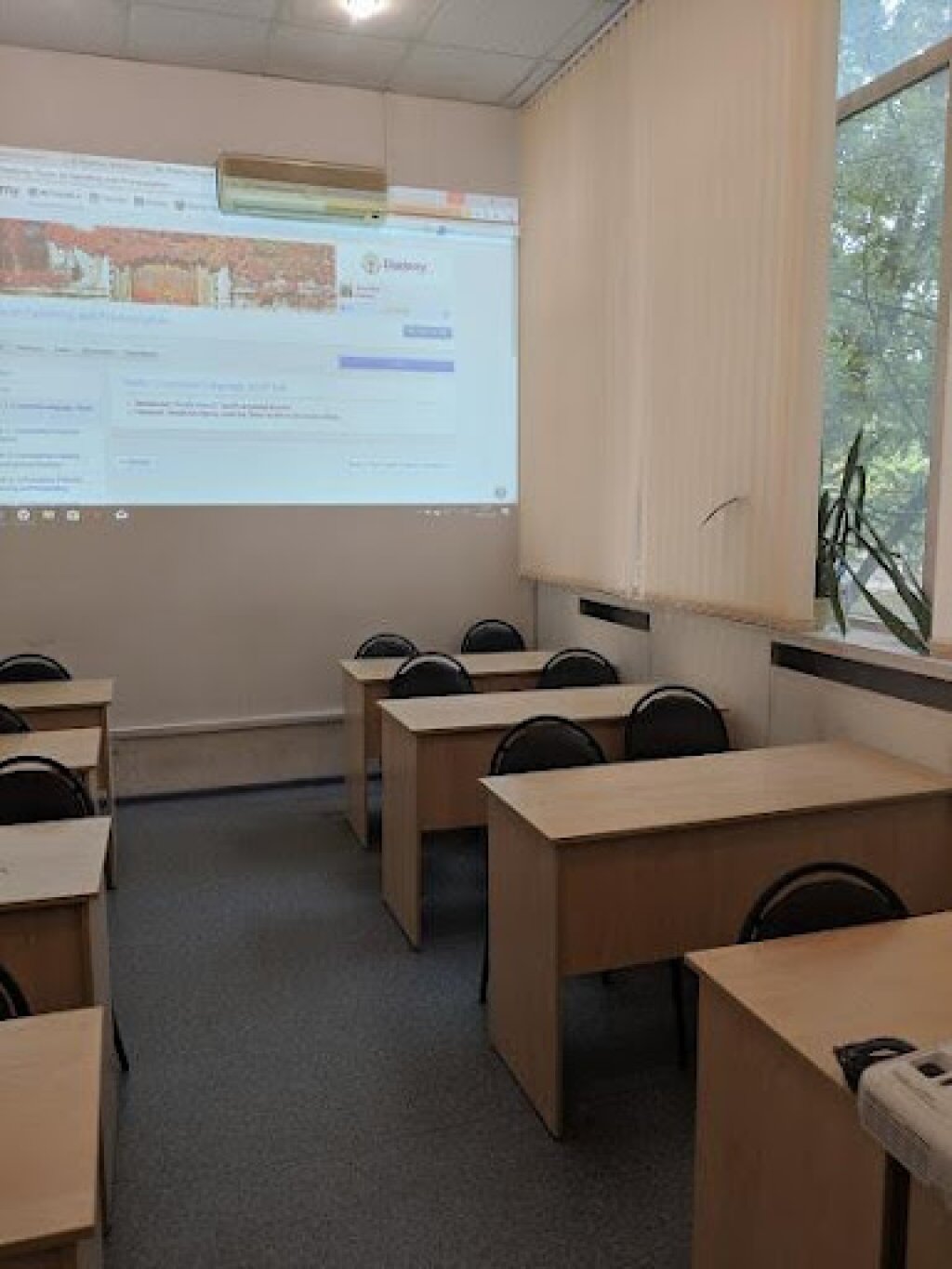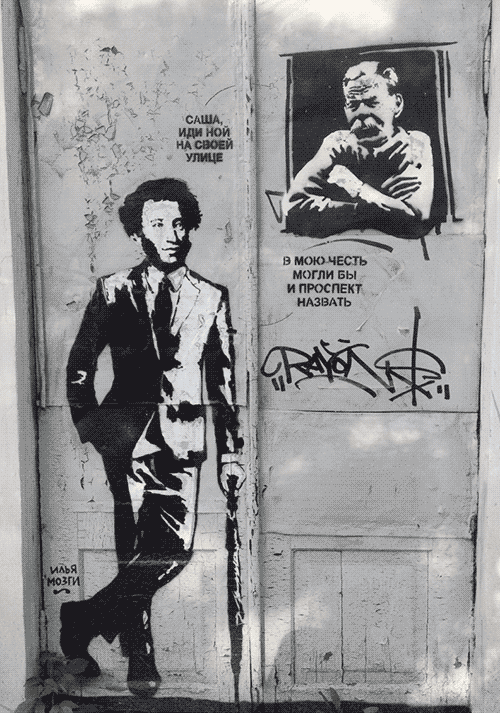The Jordan Center stands with all the people of Ukraine, Russia, and the rest of the world who oppose the Russian invasion of Ukraine. See our statement here.
A. Austin Garey teaches in the Critical Writing Program at the University of Pennsylvania. She has taught English and Russian as foreign languages.
I taught English as a Foreign Language in Moscow between 2019 and 2022, through mass student protests, increasing restrictions on freedom of speech, and, finally, a total break with Western institutions after February of last year. I taught a chilling set of classes only hours after Russia began bombing Kyiv. And as the government cracked down on connections with perceived enemies of the state, banned Facebook, Instagram, and the BBC, my students did not know how they should relate to me—the “enemy”—nor I them.
When she hired me in August 2019, the director of Moscow Pedagogical State University’s Institute of International Education gave me only two rules: Nothing sad. Nothing political. “You’ve lived in Russia—you understand what you should and should not say,” she said. And, having spent several years in the country, I did understand. If I had been at all unclear about what kinds of things might get me—or, worse, my students—in trouble, crisis-level repressions of young people earlier that month showed that the government would tolerate little in the way of dissent.
For four weekends in a row, from 20 July to 11 August 2019, tens of thousands of Moscow students turned out into the streets to protest a decision to ban anti-corruption candidates from running in the Moscow city council elections. Over 60,000 people attended the first rally in July. By the second one, police were ready with riot gear. An hour before the protest was even scheduled to start, authorities had arrested over 200 people—mostly students.
In the days leading up to the next two weekends, city officials warned everyone to stay out of central Moscow. Elderly ladies had been hauled off for simply sitting on park benches near demonstrations. The U.S. Embassy warned Americans to steer clear of the protests too, saying, “Demonstrations over the past weeks resulted in mass arrests, and there were eyewitness accounts of excessive use of force against protesters […] authorities detained innocent bystanders, [and] cellular voice and data services were suppressed near protest areas.” Footage circulating on social media confirmed these reports. One student with a placard pinned to his chest was carried off horizontally by four helmet-clad officers, each taking a limb as the young man continued to call out for change.
In the end, over 2,000 protesters were arrested. And by the elections on 8 September 2019, the opposition had been quashed. They would not get their way. They would not win. They would face only beatings and imprisonment. As the Russian rock group Lumen sung in their 2007 song “Goret’ [Burn],” “Why scream, when no one’s listening to you? / It seems to me, that we haven’t been alive for a long time—light up and the flame just dies out.”
States of emergency framed my three years at Moscow Pedagogical State University, emergencies increasingly bizarre and terrifying, all punctuated by the everyday expressive ironies that come with living in a Russian city. Jokes that might offend Orthodox believers could get you arrested. People distributing “propaganda” about homosexuality to minors, which could include depicting homosexuality at all during a class, faced fines. Even in 2019, before harsher laws were passed post February 2022, social media posts critical of the government could land you in prison on charges of extremism or threats to state security.
My students lived with this fear, and I, as faculty at a state university, did too. I almost forgot it was there. I understood.
Negotiating my responsibilities to my own (U.S.) government, to the Russian government that employed me, to my students’ educational needs, and to my students’ political protection already seemed thorny during those first post-protest weeks in autumn 2019, when my students came in subdued, resigned, and fearful. But new foreign agent laws, the COVID-19 pandemic, war against Ukraine, international sanctions, and the approximate end of international institutional exchange by March 2023 made my position as an American at a Russian university both unusual and untenable.
In my first year, before COVID took teaching online, I would often lean over my students’ shoulders when they were working individually, partly to monitor their progress, partly to be present to answer questions. One student used this as an opportunity to fill her notebook paper with, “Help me. Help me. Help me.” What could I do? In the U.S. I would ask the student about it, perhaps direct them to resources. Here, though, I felt I put us both at risk if I acknowledged her message at all. I made eye contact. We understood.
Another student in a class of linguists sent me a phonological code. When he called me over to check his work on an assignment, I was shocked to see that this young man with superior English skills had misspelled a lot of words. As I circled his errors, I noticed the pattern—and stopped. Consonants can be either “voiced” or “voiceless,” depending on whether your vocal cords vibrate when you pronounce them (a fact linguists understand well). The sounds “b” and “p,” for instance, are produced exactly the same way by your articulators, but your vocal cords vibrate to create “b.” The same is true in English for g and k, d and t, v and f, and z and s. The student had replaced every voiced consonant with a voiceless consonant, as in “gife the site pack” (“give the side back”). Was this a comment about lack of voice in Russian society? Was it an experiment because he was bored in class? Were these actually unintentional mistakes? I didn’t know. I made eye contact, then handed back the assignment with a check mark.
I took the same approach when a student brought me a novella he was working on to review in office hours. It was a steamy gay romance between a count and a servant boy set in a Spanish castle. What could I say? What kinds of feedback would register as “propaganda” about homosexuality to young people? Was this story safe for him to submit to another (Russian) instructor? I gave him some advice about grammar and phrasing.
The pandemic spooked everyone when it hit, and a lot of my students got sick. One Zoomed in to class from her hospital bed. I taught remotely from the U.S. for the next two academic years, trying to deliver a course the students would find value in without stressing them out too much. They wanted advanced English skills so they could live, work, and travel in other countries. Many wanted to teach English or French. Others wanted to work in international finance, study linguistics at University College London, work as translators, and see the world.
On 24 February 2022, those opportunities disappeared for them. The rest of the world rightly blocked Russian flights, imposed severe economic sanctions, and cut Russia off from the international banking network. H&M, McDonald’s, Zara, TGI Fridays and more abandoned Moscow. A degree from the Institute of International Education seemed suddenly irrelevant. My 230 advanced English students were going nowhere, and no one would be calling them.
Less than two hours after Russia began bombing Kyiv on 24 February, I tried to hold a sci-fi themed Zoom class. I had planned for the students to compare a video clip from Jurassic Park—the iconic scene when the T-Rex crashes through the park’s wire fences—with description from Michael Crichton’s novel. But all I could think about were Russian tanks crashing through Ukrainian border checkpoints. Worried that the class might begin discussing similar parallels, I switched to vocabulary games.
Students got a lot quieter after that day, and fewer and fewer came to class (I kept teaching until June 2022 but declined my salary). Students would mention sanctions, or the fact that you couldn’t buy Coca-Cola anymore, but casually, as one would note an avocado shortage. One of the most telling comments came near the end of the spring 2022 semester. Our class was discussing male-female relationships and global gender inequality when a student said, “It doesn’t matter, we’re all going to die. We’re just going to die in a nuclear war.”
I didn’t start out teaching in a cold war. But that is how it ended. As the Russian government cracked down more and more on connections with perceived enemies of the state and banned Facebook, Instagram, and the BBC, my students increasingly did not know how they should relate to me—the “enemy”—nor I to them. If the BBC was a corrupting influence, was ninety minutes on Zoom with an American also dangerous?
I kept showing up at 4:00 a.m. U.S. time partly because the students were losing avenues to communicate with the world outside of Russia. I wanted them to know that, whatever the news said about “Anglosaxy” enemies bent on Russia’s destruction, I liked them. I wanted them to succeed in life and other Americans wanted that, too. I hoped they would understand, without my saying so, that they would still be around when Putin was not; that they were the international educators of tomorrow, and it would be their task to re-establish exchange with the world.





